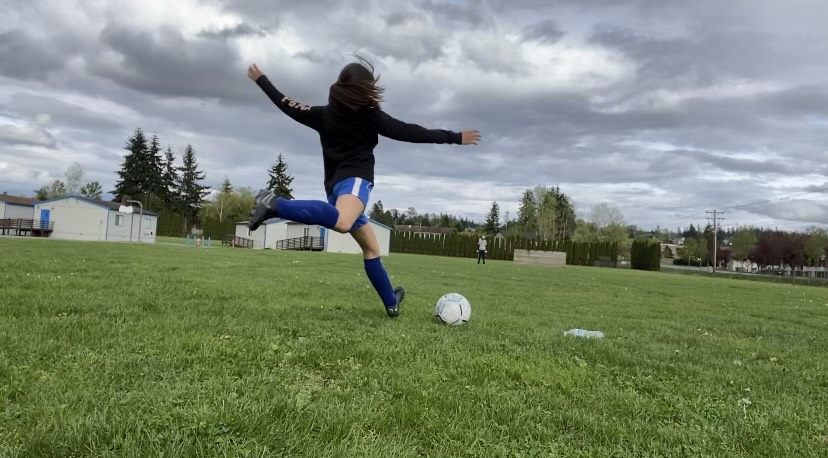5 Simple Tips To Improve Your Next Colt-Run
And your overall running health, too!
December 6, 2022
Nobody likes doing the Colt Run, especially because we’re required to complete it every week. I used to hate running overall, but after I discovered and used these five tips, it made running so much easier. I didn’t feel any pain when I improved my finishing time from 15:41 all the way down to 12:34 on November 10th, 2022. However, this doesn’t mean that I like doing the Colt Run now, but I do think my advice could be very helpful.
1. Control Your Breathing
Running stresses out your body and causes muscle soreness in your legs, chest, etc. When running, I breathe in through my mouth and out through my nose; it gives me more oxygen while maintaining a balanced cycle (breathe in for three steps, breathe out for two steps). This eases the pain while you run and causes you to run for longer periods of time. Some people who like to run at faster paces may prefer to breathe in for two steps and out for one. If that feels a little too complicated, just pay focus to your breathing and the amount of oxygen you take in.
2. Breakfast and Hydration are Crucial
Drinking water in the morning before any exercise activity is the easiest way to improve your finishing time. Water minimizes injuries, along with cramps, allowing you to run without experiencing painful sores. Make sure to drink 8-16 ounces of water before the run or the school day; I drink 24 ounces of water each morning throughout my two class periods before P.E. in third.
Having an adequate breakfast meal is equally as important, too. Fruits, toast, oatmeal, and/or eggs are all great healthy choices to prepare you for the run; I always have one or more of these in the morning. If you don’t like any of these choices, waffles and pancakes work just as well, too. Skipping breakfast can cause dizziness/lightheadedness, lack of energy, and an increased chance of injury.
3. Sleep Well
Exercises and workouts break down the cells in your muscles. Sleep allows the body to fix itself, which will make you feel stronger in the morning. Without quality sleep, you will disrupt the healing cycle, leading to a slower recovery and painful sores in your chest and legs. Avoid going to sleep too late, or waking up too early; you’ll need at least 8 hours of sleep every night.
4. Jogging
If you tend to walk for a good chunk of the Colt Run, I guarantee that replacing walking with jogging will change your finishing time drastically. I’ve used this after running for long periods of time, as another form of taking a break; it helps me catch my breath while moving quickly.
5. Listen To Your Body
The Colt Run is not a race. It’s normal to dismiss painful discomfort when running, but the Colt Run isn’t the time or the place to push yourself in reckless ways. Whenever you feel odd cramps or pain while running, it’s always important to slow yourself down. If you feel lightheaded or nauseous, stop running and walk. When you feel these and continue to run, you increase your risk of painful strains and muscle tearing.




























